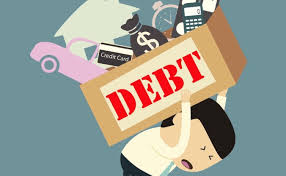What does debt rescue mean?
What Does Debt Rescue Mean?
Do you have sleepless nights thinking about how much debt you are in? Wondering “how on earth am I going to pay off all of my debt?” There is an option that can help you to sleep easier at night while you become debt free! Debt rescue may be the right choice for you.
What Does Debt Rescue Mean?
Do you have sleepless nights thinking about how much debt you are in? Wondering “how on earth am I going to pay off all of my debt?” There is an option that can help you to sleep easier at night while you become debt free! Debt rescue may be the right choice for you.
How Does Debt Rescue Work?
The NCR (National Credit Regulator) introduced debt rescue to help over-indebted consumers better manage their finances and honour their debt repayments. Debt rescue is a process where a debt counsellor helps you to budget and repay your debts at a more affordable rate.
Your debt counsellor takes all your debt into consideration and negotiates with your creditors to reduce the monthly repayment as well as lower your interest rates so that you pay less each month. A personalised repayment plan is worked out, so you have enough money left over to pay for your day to day living expenses.
Once your creditors accept the revised repayment plan you enter the debt review process and get started on your debt free journey. Your creditors will no longer be allowed to take legal action against you and your assets are protected under the National Credit Act.
Let Meerkat Rescue You
Meerkat can help you to reduce your monthly repayments and rescue your finances. We are always looking out for you every step of the way. You can contact us if you have any questions and we will help you along your path to financial freedom.If you are looking for debt rescue Contact us today!
Watch this video with Founder & CEO of Meerkat, David O'Brien as he unpacks the process:
The Meerkat Debt Management Process
1: You will go through a budget with one of our experienced consultants. This will allow us to assess your financial situation.
2: Your debt counsellor will determine if your monthly expenses are more than your income. This will determine your debt rescue plan.
3: You will be placed under debt review and your credit providers will be informed.
4: Now you only have to pay one reduced repayment towards all your debt every month and have enough money left over to afford your living expenses.
5: The process is finalised in court and you'll be on your way to a debt-free future.
Understanding the debt review process
Debt review is a process where a debt counsellor assesses your outstanding debt and implements a restructured debt repayment plan on your behalf. A new monthly payment plan is drawn up by your debt counsellor. When you are undergoing debt review, you are legally protected by the National Credit Act (NCA) and your creditors are no longer entitled to hassle you to repay your debts. All communications are managed by your debt counsellor on your behalf.
How does debt review work?
You should start by searching for a suitable debt counseling company that will help you through your debt review journey. Make sure you use a registered debt counsellor with the National Credit Regulator (NCR). You can search and review their credentials and status here.
Once you have found a debt counsellor that you are comfortable with, he/she will review your current budget. They look at your income and all your living expenses as well as all the existing debt you have.
Meerkat has registered Debt Counsellors and we've already helped thousands of South Africans become debt free! We've also been voted as one of the Top 10 Large Debt Counsellors in the country.



